Moldovan children, born in a Russia-controlled territory pass the armed men daily to resist learning a language that doesn’t exist. We visited their school.
It’s a warm spring day in the town of Grigoriopol. A white Moldovan school, ‘Number 1’, stands between the forest and the river. Suddenly, armed men burst into the building and the Romanian language classroom. They shoot every letter of the Latin alphabet hanging above the chalkboard. They vandalize the Romanian-language books in the library and scatter documents in the director’s office.

It’s 1992, and the two-year Transnistria War ended in Moldova. Several hundred people died, leaving everyone hurt and in shock. How did it all happen? One of the “excuses” was the alphabet.
During the Soviet Union, Moldovans were forced to write their Latin-derived Romanian language in Cyrillic. In 1989, the government victoriously changed it back to its natural Latin script.
The separatists, backed by the Russian army, started a bloody war a couple of years later. They gained control over the territory called Transnistria. It constitutes around 11 percent of the land. Neighbors turned against neighbors. Villages clashed with villages.
Moldova didn’t have a proper army at that time. Grigoriopol was one of the towns that fell under the illegal regime of Transnistria, a strip of land between the river Dniester and Ukraine.
The unrecognized government banned the Latin alphabet in Transnistria. The pupils were now required to learn in Russian or a Cyrillic-scripted Romanian language. To this day, the students learn the Soviet version of history.
The parents and the teachers protested. What future would their children have with such education? Eight Transnistrian Romanian-language schools resisted despite constant threats. One of them, the Grigoriopol’s school, now named Ştefan cel Mare secondary school. But because they lost their building, they moved to exile.
The Moldovan government started busing the school staff and students across the so-called border. The whole school was taken to a nearby village, Dorotcaia, some ten kilometers away from their homes. They pass the armed guards every school day.
Sometimes, the border guards keep the children waiting, and sometimes, they ask for their documents. It has been insulting and humiliating, Svetlana Jitariuc, a music and Russian language teacher of over 40 years, tells me. “But the children never turned back!” she proudly adds.
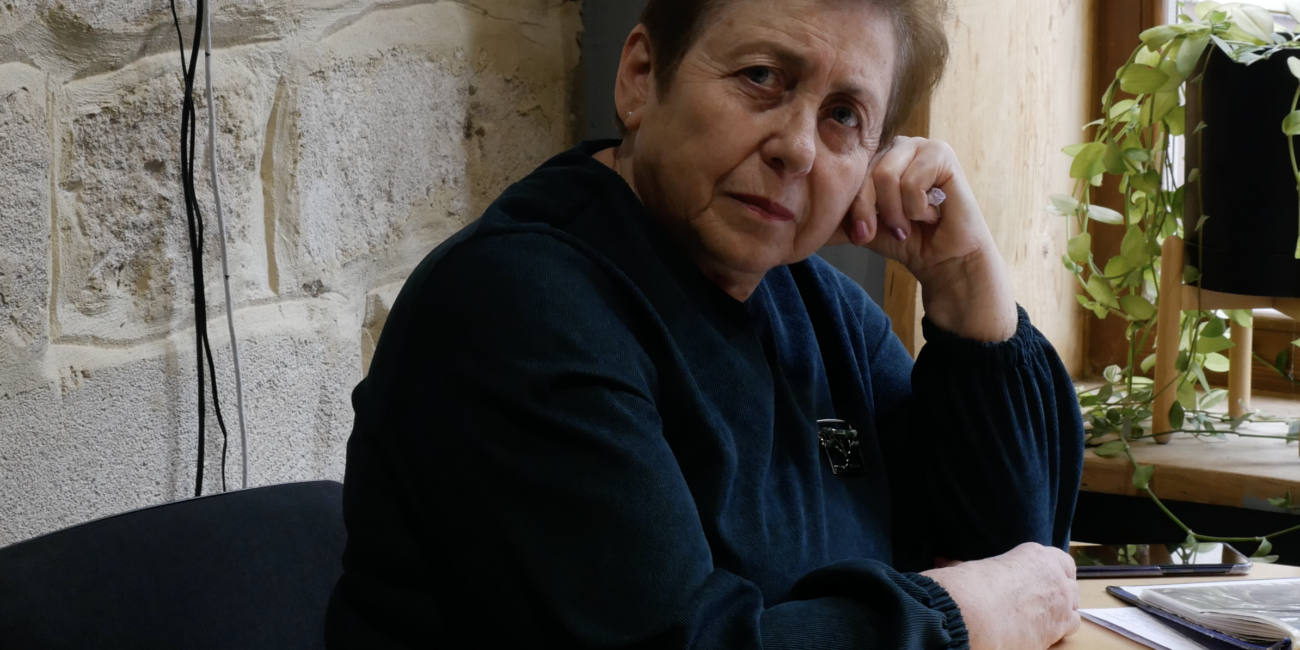
The Transnistrian War always had two front lines: one on the streets and fields with guns and the other in the classrooms, led by teachers like Svetlana.
One Sunday, Svetlana drove from her home in Transnistria to the capital of Moldova, Chisinau, to speak to me. At home, she only had reception by the window.
Svetlana brings a photo album with her. “This is the first day at school in exile,” she points at a picture of a sunny day from the early 2000s. The students smiled and lined up. Svetlana has a white dress and a determined look. Her daughter stands in front of her in a blue dress and a white flower in her hair. Svetlana’s eyes tear up, remembering that day and how she explained to her daughter what freedom means.
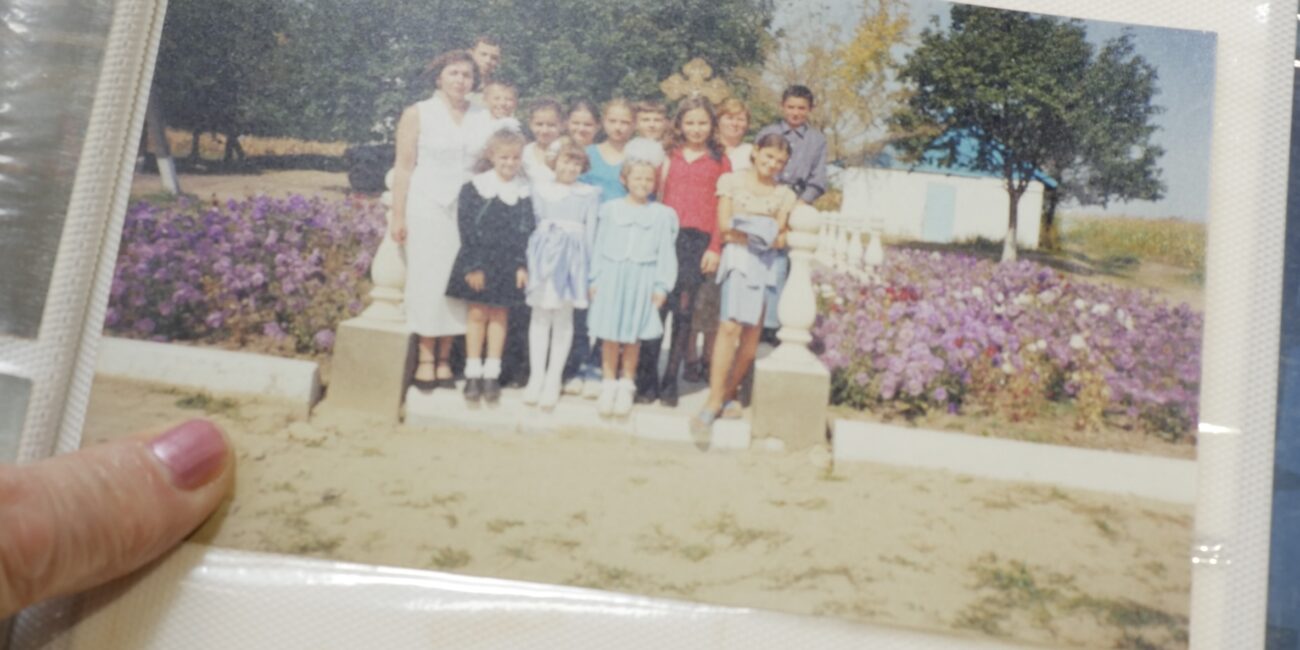
“Transnistria doesn’t exist legally,” she tells me. “It’s a phantom republic.”
Her family has been threatened by it. A woman stopped her primary school-aged son in the 90s. She ripped his schoolbag open and broke his books. “Let me see what you’re studying there!” the lady grinned at the little boy. Someone threatened Svetlana they would place a bomb under her car.
Yet, she still lives in Transnistria and teaches in the Latin alphabet. “It’s a matter of doing something from your heart. Otherwise, I wouldn’t have resisted,” Svetlana says.
A proud glimmer appears in her eyes: “We are stronger than them. Only those who are sure of themselves and know what they have and can offer are strong. We have the right to be free and to be here.”
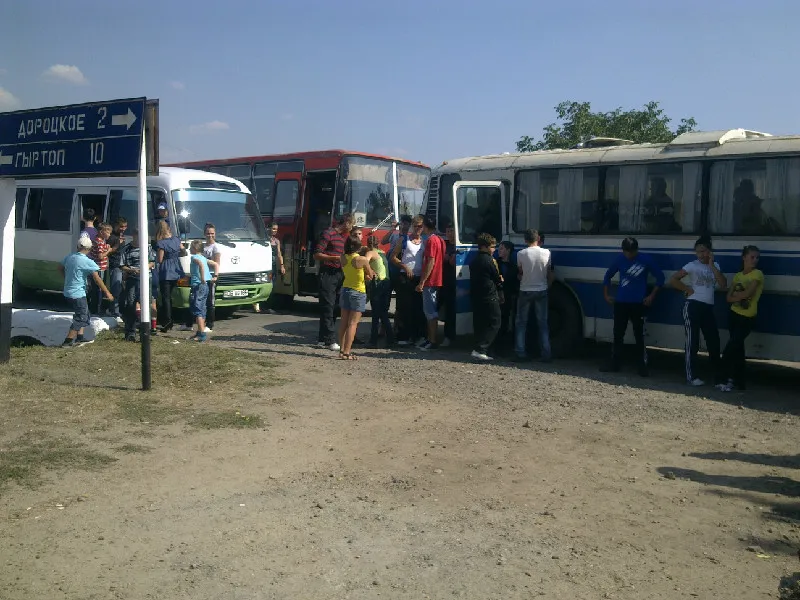
We went to the village of Dorotcaia one afternoon and immediately recognized the school. Moldovan tricolored circles decorate the schoolyard. Soon, five buses — four white and one red — rolled in. Students jumped off, mumbling in Russian and Romanian. This building hosts two schools: the local villagers come in the mornings, and Grigoriopol pupils come in the afternoons.
Among the others, a 12th-grader, Daniel Taran, enters the classroom. He sits in the first row in math class. Someone has drawn hearts and stars on the board. The kids brought flowers to their teacher, Ana. It was Women’s Day recently.
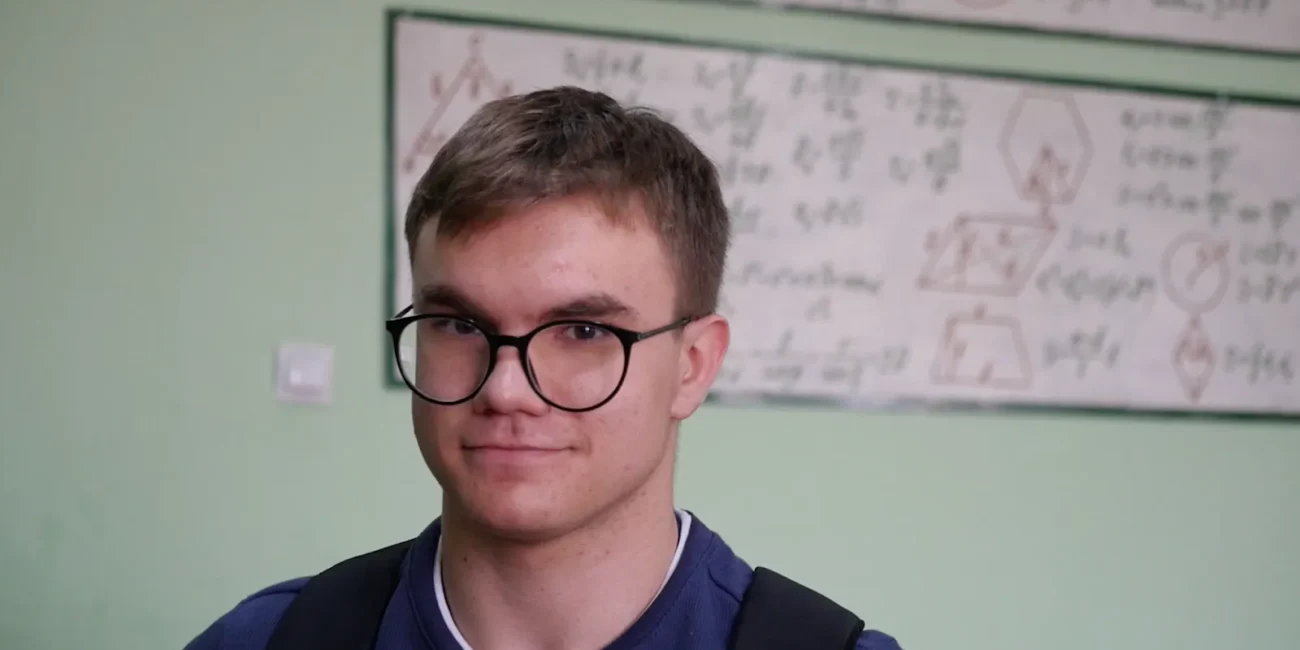
The green-walled classroom is modest but welcoming. Posters with calculations hang on the walls. Daniel says that his friends in Grigoriopol go to Transnistrian schools and study different histories, but they don’t speak about that. “I’m passive, more of a spectator.” Daniel plans to go to a Romanian university to study medicine. He is more fascinated by the human body.
Imprisoned Because of Language
Eleonora Cercavschi, the school’s director, has a calm, determined walk. She stands straight when the students humbly mutter “Good day!” to her in the hallway. When she speaks about her school, her voice has a tired tone. She has been leading this “school in exile,” as she calls it, for two decades. She thought she would be back in their old school by now. Instead, her own children, who went to the same school, have grown up, moved out, and moved on.
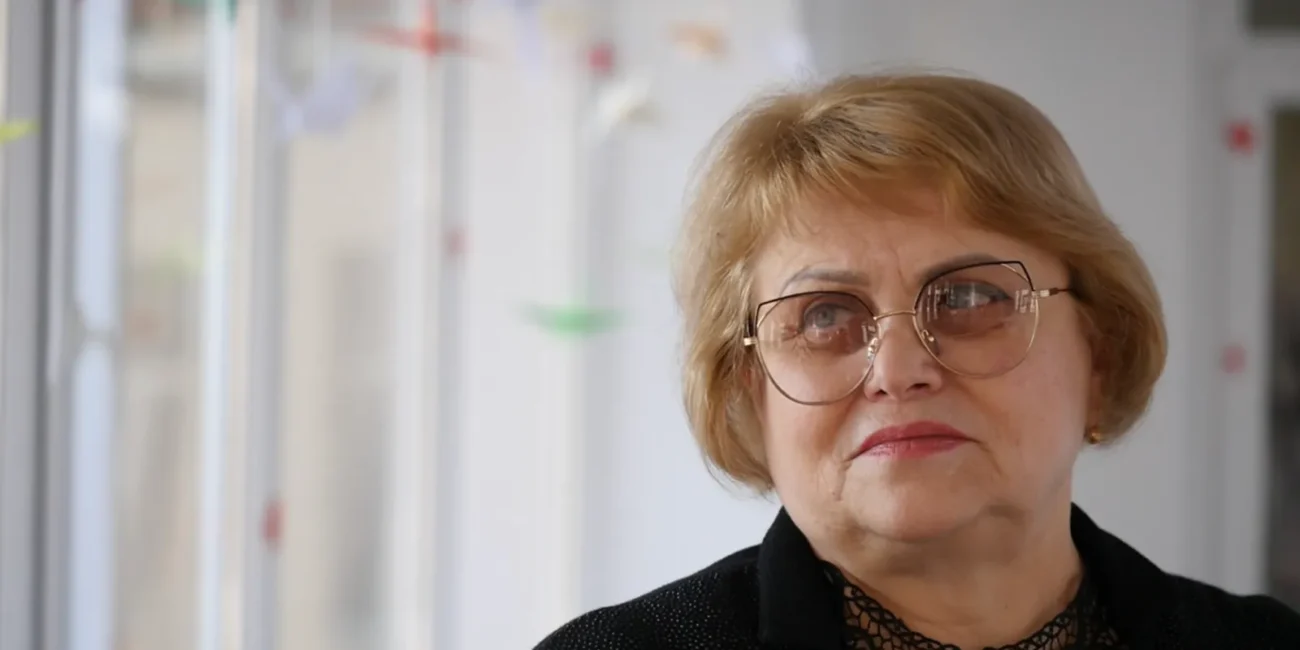
“[The Transnistrian authorities] tried to threaten me, make me quit,” she tells us. Eleonora was imprisoned for two weeks because she insisted on leading a school in Moldova’s national language, Romanian, in the occupied territory of Transnistrian. Foreign organizations and the Moldovan government intervened, and a temporary solution was proposed: transportation across the “so-called” border.
Growing Number of Students
On our way out, a teacher, Tatiana, is getting in the car with her daughter. She chose this school for her daughter to ensure she had a future. “I want her to speak her mother tongue freely,” she says. “It’s her country!”
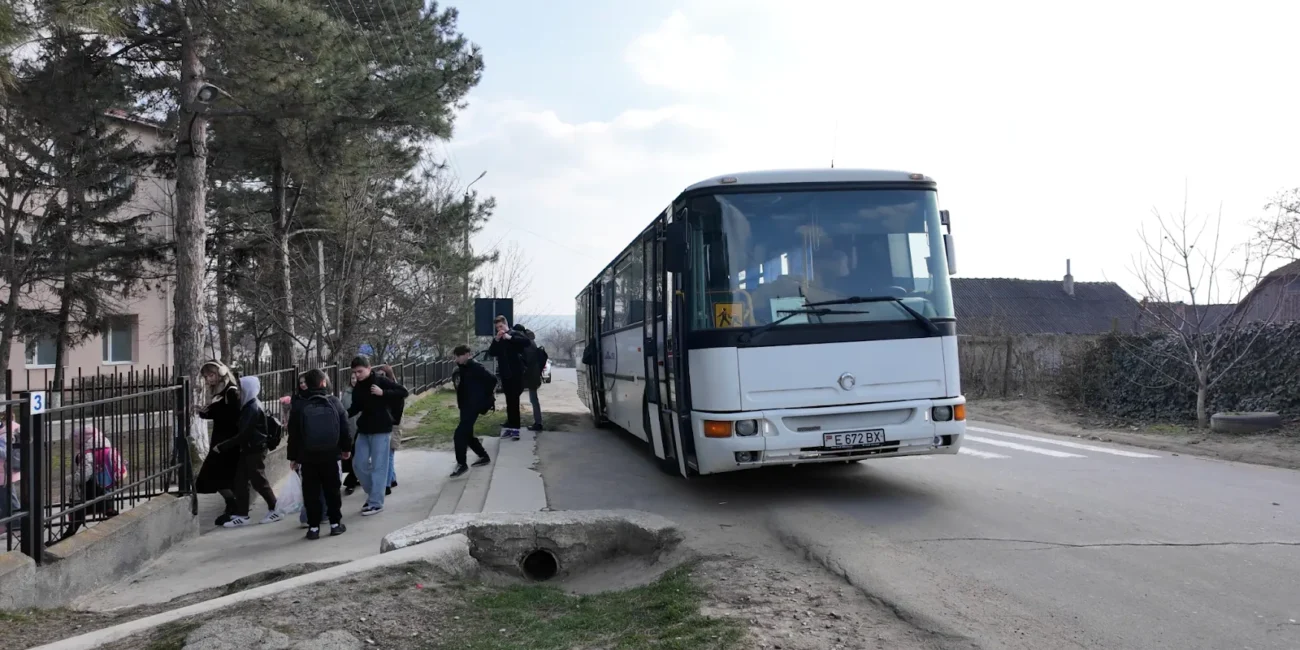
Where do you live, we ask.
She gulps nervously and answers: “Transnistria, as they say.”
And why do you keep living there?
“Because it’s my home and I want to speak Romanian in my home.”
An increasing number of parents feel the same way. Two decades ago, there were 140 students at Stefan Cel Mare school. Now, the number has doubled.
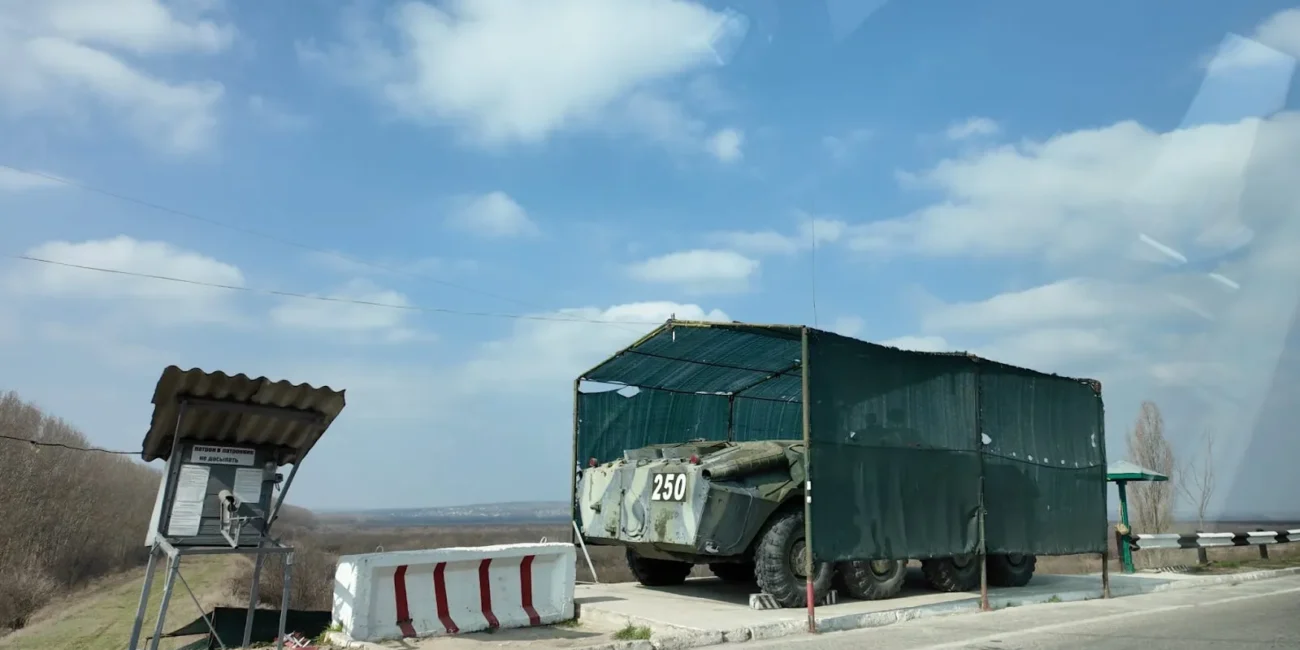
The legal battle
Moldovan human rights lawyer Ion Manole from the NGO Promo-LEX represented 170 parents, students, and teachers at the European Human Rights Court in 2004. After eight years of legal battles, the court ruled that the Russian Federation was responsible for denying the Moldovan students their right to education and would have to pay five million euros to the victims. Twelve years later, Russia still hasn’t paid.
“According to the European court, Russia created this division in Transnistria and continues to support it,” Manole explained. “When one government continues to financially, diplomatically, politically, and militarily support another, they influence the situation.” Transnistrian authorities were not accountable because they were not legally recognized. Manole: “Transnistria became a paradise for different schemes.” Manole believes that Russia will pay for everything one day.


Leave a Reply